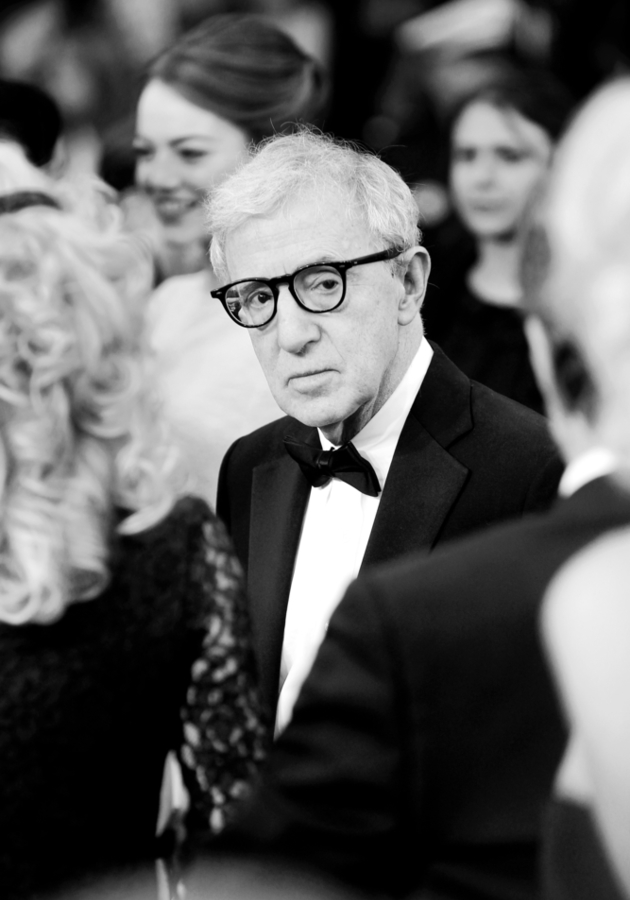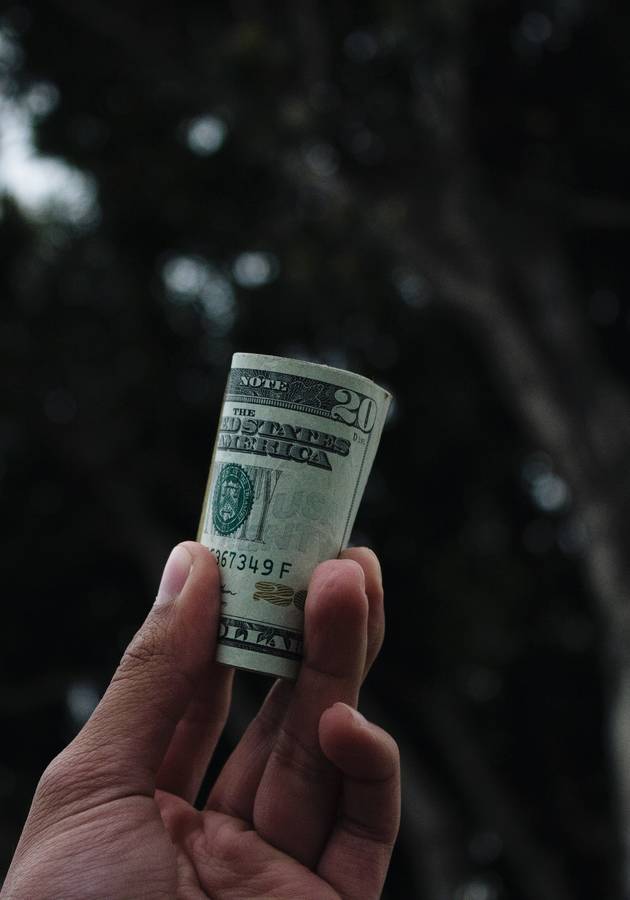On March 5, 2020, about 80 employees of Hachette Book Group staged a walkout in protest of the company’s decision to publish a memoir by director Woody Allen, accused by his adoptive daughter Dylan Farrow of having sexually molested her in August 1992 when she was just 7 years old. Dylan’s brother Ronan Farrow – who had worked with Hachette on his 2019 book “Catch and Kill” – criticized the company for showing “a lack of ethics and compassion for victims of sexual abuse” and announced he would no longer work with them. The following day, Hachette dropped the book, returning the rights to Allen.
No sooner had Twitter and Facebook launched a thousand free speech debates than Arcade Publishing made Allen’s memoir available on March 23, 2020. Jeannette Seaver, the company’s founder, described the book as “wonderful, very well-written, extremely entertaining and so honest.” Though that may be an overstatement, it is certainly not an exaggeration either. Get ready to discover why!
Family and childhood
Born in New York as Allan Stewart Konigsberg in 1935, the man who would later become famous as Woody Allen enjoyed a joyful, boisterous childhood. His father was a devil-may-care gun-loving bookmaker and cab driver, whose philosophy of life was as simple as “if you don’t have your health, you got nothing.” “Never a worry nor a care ever disturbed his sleep,” remembers Allen. “Nor a single thought his waking hours.”
Allen’s mother was mainly a florist, “faithful and loving and decent but not, let us say, physically prepossessing.” Allen says she looked like Groucho Marx, something that – according to David Evanier, a biographer of Allen – both agitated and flattered her. “Well, so what?” she had a habit of saying when Allen would point out the resemblance in front of his boyhood pals. “Groucho was, after all, a handsome man.” “But Ma, you’re a woman!” Woody would reply, drawing gales of laughter from his friends.
Both of Allen’s parents lived long and died peacefully in their mid-90s, staying married to each other for more than seven decades – “out of spite,” suspects Allen. Because, at least as he could deduce from “all the verbal carnage,” they were actually “as mismatched as Hannah Arendt and Nathan Detroit,” disagreeing “on every single issue except Hitler and [his] report cards.”
As a boy, Allen loved magic, baseball, comic books and, more than anything, his cousin, Rita, whom he describes as “one of the true bright spots” of his childhood. Five years older than him, blond, plump and attractive, she was the daughter of a fleeing Russian Jew and the most significant influence on Allen’s life. She played cards and checkers with him, introduced him to her friends, and took him everywhere: to the beach, to miniature golf and Chinese restaurants, and, on Saturday afternoons, to the movies. She also encouraged Allen to listen to the radio, where he discovered and fell in love with Cole Porter, George Gershwin, Irving Berlin and Jerome Kern, among others.
Later, Allen tells us, a friend of his named Jerry played him a New Orleans jazz concert on a newly-bought tape recorder. “Why it clicked so deeply I’ll never know,” he remembers, but after that, he – “a Brooklyn Jew, never out of New York” – became instantly obsessed with African-American jazz music. “Soon,” he tells us, “I was a wannabe comic, wannabe magician, wannabe baseball player, and wannabe African-American jazz musician.” So, no trace of the skills and talents he’s famous for today.
Likes and dislikes
Growing up as a kid in Brooklyn, Allen had a few fixations, but literature, philosophy and movies were not among them; sports and girls, on the other hand, were. He was, for lack of a better description, just an ordinary teenage boy. In fact, contrary to popular misconceptions, Allen wasn’t a “nerd” or a “geek” in school, but a skillful athlete, “track medal fast” with “fantasies of pursuing [baseball] as a career.” He claims that even today, if he happens to run into some of his old neighborhood friends, they talk to him about his skills as a ball player and never about his movies.
The other misconception – that he’s “an intellectual” – Allen describes “as phony as the Loch Ness Monster.” “I don’t have an intellectual neuron in my head,” he writes. “Illiterate and uninterested in things scholarly, I grew up the prototype of the slug who sits in front of the TV, beer in hand, football game going full blast, ‘Playboy’ centerfold Scotch-taped to the wall, a barbarian sporting the tweeds and elbow patches of the Oxford don. I have no insights, no lofty thoughts, no understanding of most poems that do not begin, ‘Roses are red, violets are blue.’” To this day, Allen claims, he prefers Tin Pan Alley poets to T.S. Eliot’s “Wasteland” and sports journalist Jimmy Cannon to Henry James and Fitzgerald.
He also claims that, for long spans of his adult life, he read books, watched movies and visited museums only so that he could impress girls. That’s why he did all of those things indiscriminately, leaving great gaps in his knowledge. If we are to believe him, he has never seen a live production of “Hamlet,” or read “Don Quixote” and “Lolita,” or anything by Woolf, Joyce or Dickens. On the other hand, he has read “Michael,” a novel written by none other than Hitler’s propagandist Joseph Goebbels.
As far as movies go, Allen has never seen classics such as “Wuthering Heights” and “Ben-Hur” or popular favorites such as “Mr. Smith Goes to Washington” or “A Star Is Born.” He has never even seen Chaplin’s “Circus,” even though he truly loves Chaplin and prefers him to Buster Keaton (whose “Navigator” he has also never seen). He also prefers “Trouble in Paradise” to “To Be or Not to Be,” musicals to serious dramas and Irene Dunne to Katharine Hepburn. “But who cares what I think,” Allen concludes self-denigratingly. “It’s taste,” after all.
Vaudevilles and comedians
More than Chaplin or Ernst Lubitsch, Allen loved W. C. Fields and the Marx Brothers. And even more than them, he loved British stand-up comedian Bob Hope. He never missed a movie or a radio show featuring him. Slowly but surely, Allen’s desire to become a comedian flattened all the others. An event that contributed toward this outcome happened in his early teens. Not being able to find a movie he wanted to see, he went to a movie house called the Flatbush Theatre, only to discover that in addition to the low-grade comedy he had chosen to see, they were also showing five acts of live vaudeville.
He was so taken with the show – which featured Al Goodman, corny jokes and spot-on impressions of Jimmy Cagney and Bette Davis – that he started returning every weekend afterward, never missing a single performance until the Flatbush Theatre closed. “It was the comedians I loved most,” he recalls, “and soon, by bringing a pencil and writing down their acts on the torn-up inside of the Good and Plenty box I could do every routine, every impersonation, of every Hollywood star, and I was certain that somewhere between comedy and magic, I was going to wind up performing.”
While still at high school, encouraged by none other than his mother, Allen began sending jokes off to newspaper columnists. One day, one of them ended up published in Nick Kenny’s column in The Daily Mirror. Immediately, he started fantasizing about his flight to Hollywood to write for Bob Hope. True to this desire, he decided to change his unpronounceable birth name to one more suitable for show business. Contrary to popular belief that his new name paid homage to clarinetist Woody Herman, it was actually an arbitrary decision. He toyed with Jay C. Allen and Mel Allen for a while, but, in the end, he settled with Woody because, in his explanation, “it was short, went with Allen, and had a light, vaguely comic touch as opposed to, say, Zolta or Ludvicio.” To this day, Allen has never regretted the decision, apart from one time when a saleslady at Bloomingdale’s nervously asked him: “Will that be all, Mr. Woodpecker?”
By then, however, Allen had already made it. With jokes and gags bearing his name floating around newspaper pages, he was called one day for a part-time job interview at the David O. Alber publicity firm. For a couple of dollars a week, Allen was asked to knock out gags for the company’s celebrity clients, which included Sammy Kaye, Guy Lombardo and Jane Morgan. Of course he immediately said yes, and worked for the agency for a few years. In the meantime, he graduated high school with a 72 grade average and was kicked out of NYU after failing to show up to classes. That really didn’t matter to him, because by then he was already a working, and even respected, comedy writer, making more money than his parents did.
Women and marriages
Allen was just 20 years old when he married Harlene Rosen, who was three years younger than he was. It was pretty much a marriage on a whim: Allen had a Plymouth convertible, a room at the Hollywood Hawaiian Hotel and a desperate desire to share these privileges of being in show business with his girlfriend. Besides, he says, “there was nothing else to do.” However, he instantly adds, Harlene’s parents should have never let their daughter marry him. “True,” he recalls, “I was showing promise in my field, but I was not showing much as a person. I was still stupid, uncivilized, neurotic, totally unprepared for marriage, an emotional mess who was coasting ever since sixteen on what Noël Coward called ‘a talent to amuse.’”
Unsurprisingly, the marriage between Allen and Rosen ended badly just three years after it had started. The two drove each other mad during this period, and could never agree or compromise on anything, mostly battling one another “like hitmen in the Castellammarese War.” It would take Allen eight years to tie the knot again. This time it was to a woman whose very name was, in Allen’s words, “sexual”: Louise Lasser. Blond and beautiful enough to be mixed up with Brigitte Bardot on more than one occasion, Lasser was one of Allen’s earliest muses, appearing in “Take the Money and Run,” “Bananas” and “Everything You Always Wanted to Know About Sex (But Were Afraid to Ask).” However, long before the last one of those made it to the cinemas, Allen and Lasser had already divorced. Thanks to Lasser’s father, “a mensch to the end,” the split was amicable and the two parted great friends. They still are to this day.
Allen has remained even closer to another one of his romantic interests at the time, Diane Keaton. The two became romantically involved after Allen had cast Keaton in his Broadway show “Play It Again, Sam,” but they broke up soon after, parting company as good friends and never even dreaming they would ever work together. “A fact that people don’t realize is that when Keaton and I began working together in the series of films I wrote for her,” Allen writes, “we had not been romantically involved for several years. Many people thought we made ‘Annie Hall’ and ‘Manhattan’ and ‘Love and Death’ while we were living together as lovers, but we were by then just lifelong pals.”
In fact, by then, Allen had gone through several chaotic relationships with a few more Hollywood stars and models, even dating both of Keaton’s sisters, Robin and Dory. In 1979, he met Mia Farrow, another one of his great muses. The two started a relationship soon after, and stayed together for the following 13 years, shooting just as many movies during that period. But allow us to save that story for a bit later.
Movies and audiences
Allen was 30 years old when he was offered $30,000 by Warren Beatty and Charles Feldman for a comedy movie about male sex addiction. After many rewrites and even more recastings, “What’s New Pussycat?” hit the screens with Peter O’Toole, Romy Schneider and Peter Sellers in the main roles, and Allen in a minor one. The critics at the time were lukewarm. Allen, however, thought the film was dreadful. He was also underwhelmed by O’Toole’s and Sellers’ performances and irate with the latter’s unlimited influence on the final product. “Artistic power in a movie has to reside with the director, not the star,” he realized back then, and resolutely decided to direct every movie he would ever write in the future. With one exception (“Play it Again, Sam”), indeed he has.
However, for all its slapstickness, “What’s New Pussycat?” seems to be one of the few movies Allen ever took as seriously as one would expect from such a respected director. Once, during a long phone conversation, Swedish director Ingmar Bergman shared with Allen a recurring fear of his: not knowing where to put the camera to make the most effective shot. “If he,” thought Allen, “the best filmmaker of my lifetime, didn’t know such a thing, then how would I ever know?” So, he decided to play it by ear. “I really don’t like to bother with a profile shot, an extra close-up, yet another take of the stars arguing because maybe they’ll do it better,” he writes. “I like making movies, but I lack the dedication of a Spielberg or Scorsese, not to mention their other gifts. I just can’t get interested enough in the movie to shoot long days and maybe miss the tip off or putting my daughters to bed.”
Moreover, he seems to have given up on understanding his audience. How could some of his movies make more in a single day in Paris or Barcelona than in the whole of the USA over their entire run is beyond him. What is also beyond him is how people could enjoy “What’s New, Pussycat?” more than, say, “Stardust Memories,” one of the few movies of his career he deems praiseworthy. Once, after seeing “September,” director Joel Schumacher asked Allen why would anyone want to make such a picture. Yet not only did Allen want to make the movie very much, he also thinks it is one of his better ones, having everything a good Chekhov play might have. Well, he adds, everything except for that “essential unquantifiable ingredient – genius.”
Strangest of all, Allen is confused to this day by the critical adoration of his best-loved films, “Manhattan” and “Annie Hall.” But then again, he doesn’t think highly of critics anyway. In fact, he once told Pauline Kael that she had everything a great critic should have: “an encyclopedic knowledge of movies, passion, great writing style, but not taste.”
Accusations and counteraccusations
Before Mia Farrow began a relationship with Woody Allen in 1980, she had gone through two failed marriages, both of them to men much older than her: singer Frank Sinatra and composer André Previn. With the latter, she had three biological sons and adopted three more children from Asia, including 7-year-old Korean Soon-Yi in 1977. Soon after beginning the relationship with Allen, Farrow adopted Moses, a 2-year-old orphan with cerebral palsy, and, five years later, she adopted another child, a two-week-old baby girl named Dylan. Allen became the adoptive father of the two in December 1991, after an official decision by a New York City court. In the meantime, he had a biological son with Farrow, Pulitzer Prize-winning journalist Ronan Farrow, born in December 1987.
Allen cast Farrow in every single movie he made from 1982 to 1992 and praises both her professionalism and each one of her phenomenal performances. However, as the 1980s waned, things started getting a little chillier between the two – and a little warmer between Allen and his stepdaughter Soon-Yi. When he was 56 and she 21, in the midst of making the movie “Husbands and Wives,” the two began an affair. Farrow found out about it in the most inconvenient way, after visiting Allen in his apartment and happening upon a few nude Polaroids of Soon-Yi on the fireplace mantel. Allen claims that he didn’t leave the photos exposed with intention or malice – “it was simply a blunder by a klutz,” he writes.
Be that as it may, the event marked the bitter end of Allen and Farrow’s professional relationship, and the even bitterer beginning of Farrow’s “Ahab-like quest for revenge.” Not long after, Farrow called Allen’s sister and told her the following few chilling words: “He took my daughter, now I’ll take his.” At least if we are to believe Allen, that’s precisely what she did, “coaching and brainwashing” Dylan into believing that one August afternoon in 1992, at the age of 7, she had been sexually molested by Allen, while playing with trains at the couple’s Connecticut home. “I never laid a finger on Dylan, never did anything to her that could be even misconstrued as abusing her,” replies Allen, maintaining his innocence. “It was a total fabrication from start to finish, every subatomic particle of it.”
So, why has he refused to talk to the media about the matter for so long? And why hasn’t he seemed overly upset despite some vicious attacks against him? “Well,” Allen shrugs, “given the malignant chaos of a purposeless universe, what’s one little false allegation in the scheme of things? Second, being a misanthropist has its saving grace – people can never disappoint you.”
Death and legacy
Despite his alleged misanthropy, Allen does seem disappointed with quite a few of his Hollywood peers, subtly reproaching some of them for hypocrisy or, more precisely, for publicly denouncing him just so they wouldn’t be shunned from public life and awards ceremonies by the “Appropriate Police” and the “#MeToo zealots.” In themselves, these two phrasings demonstrate – as one reviewer has noted – that Allen isn’t in it to win friends. On the contrary, in fact: for better or for worse, many of the pages of his memoirs show that he couldn’t care less.
Another thing he cares little about is legacy. “For students of cinema,” he writes disinterestedly, “I have nothing of value to offer. My filming habits are lazy, undisciplined, the technique of a failed, ejected film major.” Even more revealingly and strangely, near the end of his autobiography, he states the following: “I’m 84, my life is almost half over. At my age, I’m playing with house money. Not believing in a hereafter, I really can’t see any practical difference if people remember me as a film director or a pedophile or at all. All that I ask is my ashes be scattered close to a pharmacy.”
Such a claim can be better understood in view of the fact that Allen feels the main theme of his autobiography to be not his life, but “man’s search for god in a pointless, violent universe.” Soon after he first became aware of mortality at the age of five, Allen accepted the meaninglessness of existence. Since death is both inevitable and unpredictable – he pondered then as he still ponders now – isn’t every human effort just a different way of temporarily dampening down our fear from the nothingness? Nearing that stage, Allen sums up his life as “lucky” and claims that his biggest regret is not making a great movie despite being given millions of dollars and total artistic control. Even so, he wouldn’t give up a second of what he has left for another shot at a timeless masterpiece. “Rather than live on in the hearts and mind of the public,” he concludes, “I prefer to live on in my apartment.”
Final notes
Reviewing “Apropos of Nothing” for Deadline Hollywood, Peter Bart described Allen’s memoir best when he said it was actually an anthology of three books: “One is a hilarious account of his Brooklyn upbringing; the second is a superbly revealing analysis of triumphs and flaws in his filmmaking; and the third is a baffling and unhinged report of his personal encounters, which reads like a bad parody of a Dostoevsky novel, with subtitles by Freud.”
Indeed, “Apropos of Nothing” is not a cleanly organized autobiography, nor is it even and balanced in the way it treats different stages and aspects of Allen’s life. Mark Harris for Vulture rightly points out that all those “Anyway, where was I?”, “To get back to the point” and “Sidebars” the book is dotted with suggest dictation more than writing. If truth be told, the iconic image of Allen dictating his ideas from the end of “Manhattan” crossed our minds several times while reading the book. And some of these ideas didn’t just seem half-baked to us, but also irrelevant and even slightly stomach-turning.
However, regardless of the fact that the memoir would have clearly profited from a better editor, it is still one written by Woody Allen and – from hilarious one-liners and non-sequiturs to irreverent and self-deprecating wit – it shows off almost everything that made him such an important and beloved 20th-century director. “So, yes,” to quote National Review’s Peter Tonguette, “it is good to hear again from Allen, who comes across as comfortable in his skin, realistic and then some about his faults, resolute in defending himself, and, finally, not too worried about where the chips might fall.”
12min tip
Lest we want to create a dystopian “guilty by accusation” world, we ought to adhere to the fundamental principle of justice, as old as the Ancient Greeks and Romans: Audi alteram partem, “Let the other side be heard as well.”





























